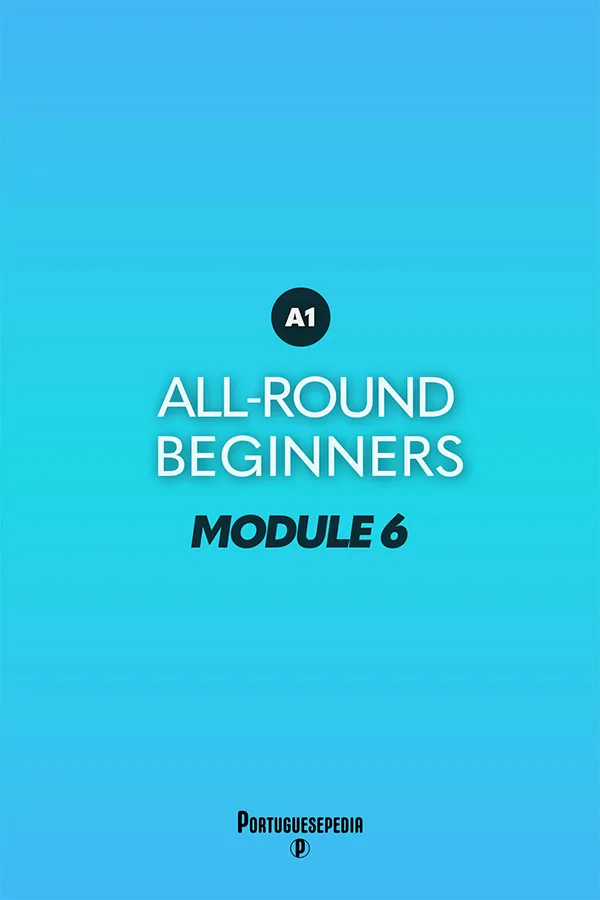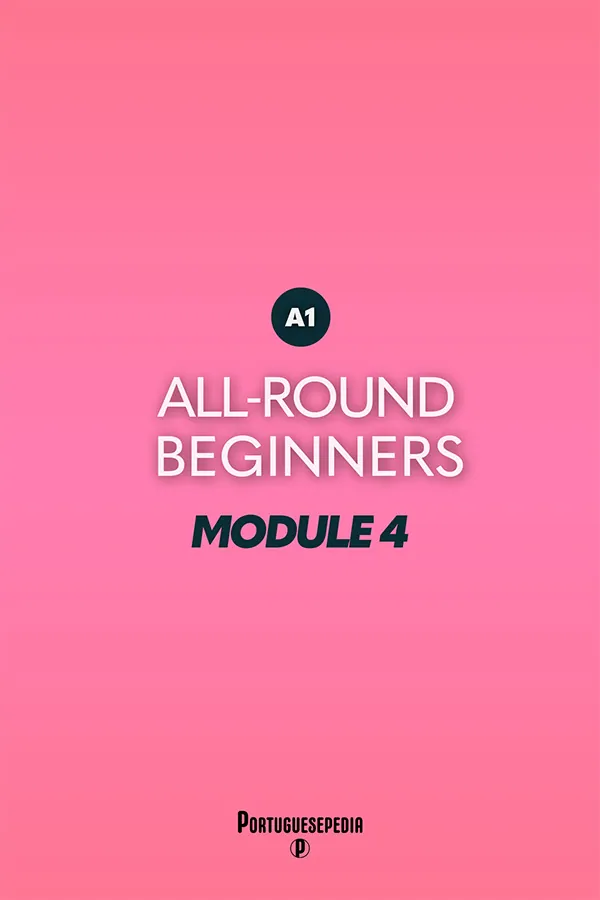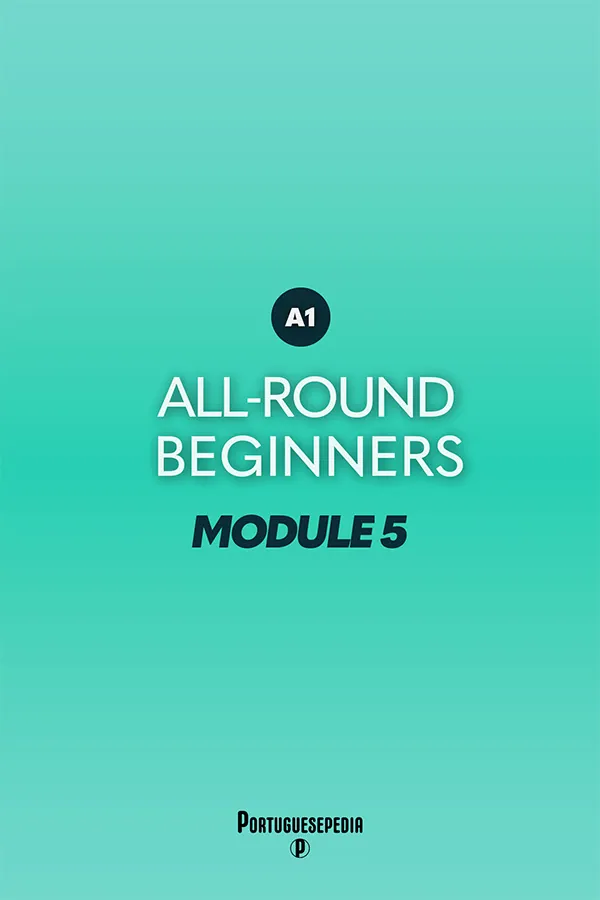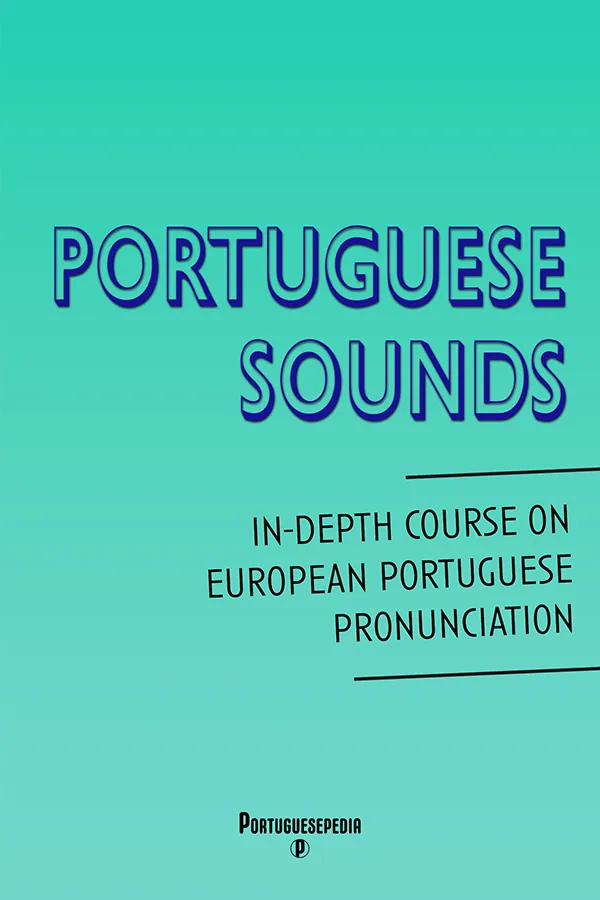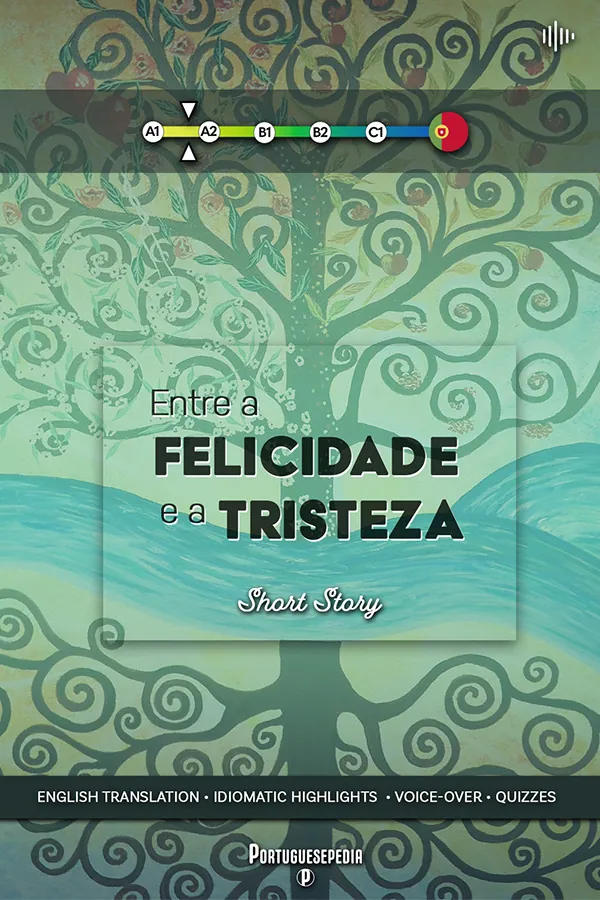
Numbers in Portuguese
Learning to say the numbers in Portuguese is one of those things you want to achieve as soon as possible in your language-learning journey.
You see, numbers pop all the time in everyday conversations and you’ll often need to recall them on the fly when talking to people. If you can’t do that, your conversational flow will suffer.
Here’s the first glance at Portuguese numbers:
| 1 – um | 12 – doze | […] |
| 2 – dois | 13 – treze | 30 – trinta |
| 3 – três | 14 – catorze | 40 – quarenta |
| 4 – quatro | 15 – quinze | 50 – cinquenta |
| 5 – cinco | 16 – dezasseis | 60 – sessenta |
| 6 – seis | 17 – dezassete | 70 – setenta |
| 7 – sete | 18 – dezoito | 80 – oitenta |
| 8 – oito | 19 – dezanove | 90 – noventa |
| 9 – nove | 20 – vinte | 100 – cem |
| 10 – dez | 21 – vinte e um | 1.000 – mil |
| 11 – onze | 22 – vinte e dois | 1.000.000 – milhão |
In what follows, I will walk you through the logic behind counting in Portuguese and make sure you pronounce them right. Read on.
Drilling numerals into our heads
It is one thing to know the Portuguese numbers. It is another to be able to recall them at will. The best way to develop such readiness is to practice saying Portuguese numbers as you go through your day (in-context practice).
Even intermediate-level students already acquainted with Portuguese numbers struggle to recall them in conversation.
Imagine the following situation. You’re learning Portuguese and you’re brave enough to approach people in your target language. You say Hi! and introduce yourself. The other person replies and the conversation is flowing well until …
Well, until you want to mention, say, your age! You go, “Oops”, you get stuck there. Has that ever happened to you?
It probably has. And that’s partly a positive thing because it means that you’ve been daring to talk in Portuguese, well done!
But at the same time, it is a pity that your conversational flow systematically gets interrupted whenever you need to mention your age or recall any numeral for any other reason.
Here’s the thing – you must go beyond learning the numbers. You’ve got to etch them on your brain to have them at hand.
How do we achieve that? Practice. Daily practice.
Integrate it into your day-to-day life. Maybe you’re playing a board game or cards and need to keep score – well, do it in Portuguese then. Or maybe you’re killing some time doing sudoku – say those numbers aloud in Portuguese as you go through it.
There are certainly several other situations where you can drill Portuguese numbers. Just keep tapping into those daily opportunities and, before you know it, Portuguese numbers will be second nature to you.
Reading tips! Daily practice is a vital principle of language learning in general. Here are a couple of articles on must-know learning strategies:
1. Mindsets and Strategies to Learn Portuguese the Best
2. Here’s How to Push Through Your Portuguese Speaking Skills
Counting in Portuguese
As far as logic is concerned, counting in Portuguese is quite similar to counting in English. You learn the basic blocks – the units, tens, hundreds, and so on – and everything else builds on that.
Let’s take a closer look at it.
Numbers 0 – 10
| 0 | zero |
| 1 | um/uma |
| 2 | dois/duas |
| 3 | três |
| 4 | quatro |
| 5 | cinco |
| 6 | seis |
| 7 | sete |
| 8 | oito |
| 9 | nove |
| 10 | dez |
Gender in numbers!
The numbers 1 and 2 take different endings according to gender.
Um agrees with masculine nouns, whereas uma agrees with feminine nouns. The same goes for dois and duas, that is, they agree with masculine and feminine nouns respectively.
Further reading! As you may have noticed, the gender dimension is very pervasive in Portuguese. Learn more about it in this article: Disentangling Gender with Portuguese Masculine-to-Feminine Spelling Patterns.
Spelling-pronunciation patterns
Note the nasal sound in um! All Portuguese words ending with the letter m produce that nasal sound. So, make sure that the air flows out through your nose when you say um.
Numbers 2, 3, and 6 end with the letter s. That means that you’ll pronounce those last syllables with a sh-sound, as in sheep. The same applies to the number 10 that ends with the consonant z. All Portuguese words ending with either s or z produce that same sh-sound.
Now listen carefully to numbers 7 and 9. Did you notice that you hardly hear that e at the end? It is almost mute, right? That’s the case for most Portuguese words ending with the vowel e.
Numbers 11 – 20
| 11 | onze |
| 12 | doze |
| 13 | treze |
| 14 | catorze |
| 15 | quinze |
| 16 | dezasseis |
| 17 | dezassete |
| 18 | dezoito |
| 19 | dezanove |
| 20 | vinte |
Spelling-pronunciation patterns
Again, you can barely hear that last vowel e in the numbers 11, 12, 13, 14, 15, 17, 19, and 20.
And what about the double-s on 16 and 17? In Portuguese, whenever the s gets trapped in between vowels (take the word casa for example), it will produce a voiced sound, as in zebra or these. The double-s, however, always renders an unvoiced s-sound, as in simple.
Pay attention to how we pronounce 15. You don’t hear the u-sound when you say quinze, do you? In general, we don’t pronounce the u on qui-syllables. The same applies to que-syllables. But! We pronounce u on qua-syllables, as in quatro.
Further reading! Learn more about Portuguese phonology and spelling-sound patterns: Portuguese Pronunciation: A Helpful Guide to Portuguese Basic Sounds and Spelling Patterns.
Numbers 21 – 100
| 21 | vinte e um |
| 22 | vinte e dois |
| 23 | vinte e três |
| . . . | . . . |
| 30 | trinta |
| 40 | quarenta |
| 50 | cinquenta |
| 60 | sessenta |
| 70 | setenta |
| 80 | oitenta |
| 90 | noventa |
| 100 | cem |
After 20
After twenty, we just go on counting, easy! We put together the tens and the units. Mind that we always write and pronounce that little e (and) between the tens and units.
And of course, you’ll need to learn the tens (10 and its multiples) all the way up to 100.
! Do you remember what I just said above about how to pronounce qui and que syllables? Well, there is no rule without an exception – the number 50, cinquenta, is one such exception where we pronounce that u.
Numbers 101 – 1000
| 101 | cento e um |
| 102 | cento e dois |
| 103 | cento e três |
| 110 | cento e dez |
| 145 | cento e quarenta e cinco |
| . . . | . . . |
| 200 | duzentos |
| 300 | trezentos |
| 400 | quatrocentos |
| 500 | quinhentos |
| 600 | seiscentos |
| 700 | setecentos |
| 800 | oitocentos |
| 900 | novecentos |
| 1000 | mil |
There’s cem, and there’s cento
We go on through the hundreds (100 and its multiples) until we reach 1000. Note that after cem (100), you’ll switch over to cento. Again, don’t forget that e between the tens and units, and the hundreds and tens.
One more thing to keep in mind! The hundreds (200 and upwards) change endings according to gender. We say duzentas casas (a casa), but we say duzentos carros (o carro).
Towards infinity
| 1001 | mil e um |
| 1020 | mil e vinte |
| 1200 | mil e duzentos |
| 1215 | mil duzentos e quinze |
| 1900 | mil e novecentos |
| 1981 | mil novecentos e oitenta e um/uma |
| 2000 | dois mil |
| 10 000 | dez mil |
| 25 000 | vinte e cinco mil |
| 300 000 | trezentos mil |
| 555 500 | quinhentos e cinquenta e cinco mil e quinhentos |
| 555 555 | quinhentos e cinquenta e cinco mil quinhentos e cinquenta e cinco |
| 106 | um milhão |
| 109 | mil milhões |
| 1012 | um bilião |
| 1015 | mil biliões |
| 1018 | um trilião |
| . . . | . . . |
| ∞ | infinito |
Keep adding up
After 1000, we basically apply the same logic as before. Still, there are a few things to keep in mind.
First off, we don’t say that e between thousands and hundreds, as in 1981. But! We do say e with multiples of 100 like 1200 or 1900 (see the table above).
Also, we say e between thousands and tens, or between thousands and units, as in 1020 and 1001 respectively.
When counting in thousands, we say e as we normally do between hundreds and tens, and tens and units, as in 555 5555.
European vs Brazilian! Both bilião and trilião is European spelling, whereas bilhão and trilhão is Brazilian. Most importantly, they mean different things. Bilião corresponds to one million million in Portugal, whereas bilhão in Brazil corresponds to a thousand million. Trilião amounts to one million billion in Portugal, whereas trilhão in Brazil equals a thousand billion.
Learn more about how the European and Brazilian standards compare: European vs. Brazilian Portuguese – How Different Are They, Really?
Portuguese ordinal numbers
The ordinal numbers in Portuguese take different endings according to gender and number:
| 1st | primeiro(s) primeira(s) |
| 2nd | segundo(s) segunda(s) |
| 3rd | terceiro(s) terceira(s) |
| 4th | quarto(s) quarta(s) |
| 5th | quinto(s) quinta(s) |
| 6th | sexto(s) sexta(s) |
| 7th | sétimo(s) sétima(s) |
| 8th | oitavo(s) oitava(s) |
| 9th | nono(s) nona(s) |
| 10th | décimo(s) décima(s) |
| 11th | décimo-primeiro(s) décima-primeira(s) |
| 12th | décimo-segundo(s) décima-segunda(s) |
| . . . | . . . |
| 20th | vigésimo(s) vigésima(s) |
| 21st | vigésimo-primeiro(s) vigésima-primeira(s) |
| 22nd | vigésimo-segundo(s) vigésima-segundo(s) |
| . . . | . . . |
| 30th | trigésimo(s) trigésima(s) |
| 40th | quadragésimo(s) quadragésima(s) |
| 50th | quinquagésimo(s) quinquagésima(s) |
| . . . | . . . |
When do we use them?
As in English, we use ordinal numbers when we rank something.
But! Unlike English, we use the “normal” numbers to refer to the days in the month. For instance, we say vinte e cinco de maio (25th of May). Accordingly, the sentence, “He turns 25 on the second of April” translates to, Ele faz 25 anos a dois de abril.
Learn more about the similarities and differences between Portuguese and English grammar: Portuguese Grammar Compared to English.

Olá! I'm Pedro and I'm your Portuguese teacher.
Ready to unlock the beauty of European Portuguese? Portuguesepedia is your key! This all-in-one platform provides a wealth of learning resources, from bite-sized video lessons to immersive idiomatic dips. Perfect your pronunciation and aural comprehension with listening drills and solidify your grammar with in-depth articles. Start your Portuguese journey today!
Share this article
Get my guide "Key Strategies to Learn Portuguese" for FREE.
















